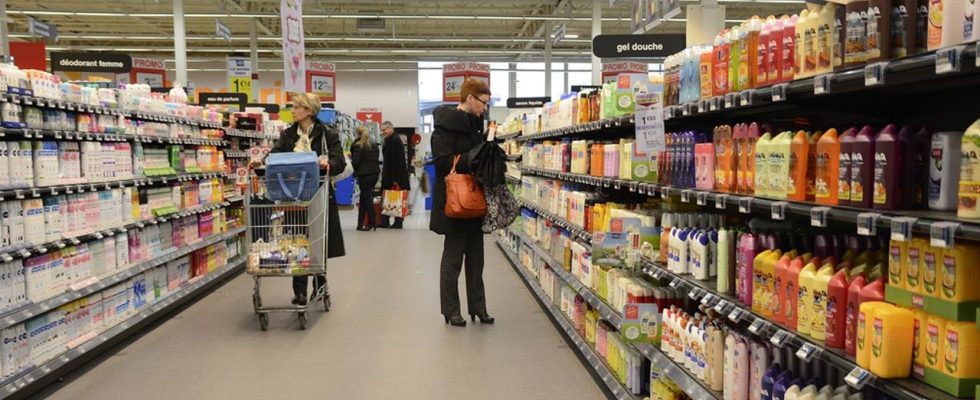Published on Jan 17, 2024 at 5:44 p.m.Updated Jan 17, 2024 at 6:54 p.m.
The consumption of everyday products is changing. Inflation is falling, but ongoing commercial negotiations between distributors and their suppliers only give hope for a few reductions. Volumes, that is to say the number of items sold, are decreasing. The French are restricting themselves. Above all, they have changed the way they consume.
In his annual report, panelist Circana establishes the decrease in sales at 3.1%. The increase in prices allows turnover to climb by more than 8.6%. Inflation is certainly falling, it stands at 12.8% for 2023 compared to the start of the year at 14%. It peaked at 16% in the spring, then fell back to 7% in December.
The fact remains that prices have increased by 20% since 2021. “Until 2010, food inflation followed general inflation. Afterwards, the price war caused deflation. For two years, food inflation has been disconnected from general inflation,” summarizes Emily Mayer, chief analyst at Circana.
Private label brands up slightly
The phenomenon of deconsumption is all the more severe for large stores as catering has proven resilient. The French want to go out and restaurant attendance has increased by 4% for an overall turnover up 12%.
The increase in labels has especially penalized the big brands. Their sales plunged by 6.2% in volume while private labels gained 0.8%. Will the agri-food giants accept selling less for long and will they lower their prices accordingly? It is not certain.
The panorama that Circana paints is full of counterintuitive data. Despite inflation, private label brands only represent 28% of supermarket and hypermarket activity, far from the historic peak of 33%. First prizes only constitute 2.5% of purchases.
No bonus for discounters
Reputedly cheaper, discounters, such as Lidl and Aldi, as well as hypermarkets have not gained market share. Convenience stores, 15% to 20% more expensive, have not lost customers. Furthermore, integrated networks such as Carrefour or Auchan are losing ground (-7.9% in volume) compared to independents Leclerc, Intermarché and U which are gaining 0.4%.
“Consumers are optimizing their shopping,” explains Emily Mayer. They frequent more brands to find the best deal, they go to Action, Normal or to sites like Temu. They make trade-offs, buy less expensive items like alcohol or hygiene and beauty but indulge in little sweet or savory pleasures. Studies show an appetite for consumption. We are not in a logic of austerity like in 2008 during the financial crisis. »
Long-term trends are also changing the situation. The population is aging and older people consume less. More than a third of households (37%) have only one person, customers who go close to home and buy within their budget every day.
For 2024, Circana experts predict prices rising by around 2.5% at the end of trade negotiations and, therefore, food inflation of less than 2% in total, with only 0.5% loss in volumes. If the forecast comes true, the brands that have made their increases strong will have won their bet.

